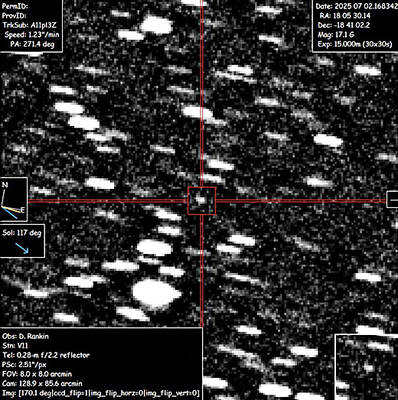The screen shows a cluster of apartment buildings, some of them empty, some with the figure of a person silhouetted against the window. Click on an apartment and a story pops up on screen.
“I spent two hours alone, wandering around an Ikea, because I was too nervous to ask people to come with me,” it reads. “I ate two hotdogs and bought nothing.”
The confession is part of The Loneliness Project, an online platform dedicated to showcasing stories of social isolation from around the globe.
The result is a sort of digital antidote to the often highly curated world of social media, said Marissa Korda, the Toronto-based graphics designer behind the initiative.
“Facebook is a happiness project. Instagram is a happiness and beauty project,” the 26-year-old said. “We need more projects that talk about how life is happy, and it’s also lonely and it’s sad.”
She launched the project in October last year with a call for anonymous stories.
More than 1,400 stories soon came pouring in from more than 60 countries around the world, ranging from Taiwan to Syria to Cuba.
For those experiencing chronic loneliness — a debilitating condition that differs from the ebb and flow of transitional loneliness addressed through the project — the Web site offers resources to find help.
Some on the Web site share their stories of moving to a new place and not knowing anyone while others reel from breakups. Others detail the heartbreak of not having anyone to wait for them as they undergo surgery, or to cheer them on as they cross the finish line of a marathon. One man spoke of walking his dog alone on Christmas, the scent of turkey wafting in the air as he glimpsed living rooms filled with families and friends.
After months of reading the stories, Korda has picked up on a pattern: At the heart is a profound disconnect between what people are hoping to get from their social interactions and the reality of their situations.
“We’ve really stigmatized loneliness, to a degree that makes it really hard to talk about,” she said. “I’m also trying to show loneliness as just a normal part of being human. It comes, it goes, it’s something that we experience and it doesn’t need to be as isolating as it is.”
Korda sifts through the submissions to the Web site, publishing a handful of stories each week against the site’s backdrop of apartments and the din of city traffic.
She has spent hundreds of hours to date putting together the Web site, describing it as an unpaid labor of love that she hopes to one day expand to include other, often-hidden emotions such as guilt and failure.
While Korda welcomed the attention, she worried that much of it reinforced the idea that loneliness exists solely as something to be eradicated.
“It’s not realistic to expect that we can cure loneliness and I don’t think we should — it’s part of being human,” she said. “It’s a signal to ourselves that we want something more from our social interactions.”

Two former Chilean ministers are among four candidates competing this weekend for the presidential nomination of the left ahead of November elections dominated by rising levels of violent crime. More than 15 million voters are eligible to choose today between former minister of labor Jeannette Jara, former minister of the interior Carolina Toha and two members of parliament, Gonzalo Winter and Jaime Mulet, to represent the left against a resurgent right. The primary is open to members of the parties within Chilean President Gabriel Boric’s ruling left-wing coalition and other voters who are not affiliated with specific parties. A recent poll by the

TENSIONS HIGH: For more than half a year, students have organized protests around the country, while the Serbian presaident said they are part of a foreign plot About 140,000 protesters rallied in Belgrade, the largest turnout over the past few months, as student-led demonstrations mount pressure on the populist government to call early elections. The rally was one of the largest in more than half a year student-led actions, which began in November last year after the roof of a train station collapsed in the northern city of Novi Sad, killing 16 people — a tragedy widely blamed on entrenched corruption. On Saturday, a sea of protesters filled Belgrade’s largest square and poured into several surrounding streets. The independent protest monitor Archive of Public Gatherings estimated the

Irish-language rap group Kneecap on Saturday gave an impassioned performance for tens of thousands of fans at the Glastonbury Festival despite criticism by British politicians and a terror charge for one of the trio. Liam Og O hAnnaidh, who performs under the stage name Mo Chara, has been charged under the UK’s Terrorism Act with supporting a proscribed organization for allegedly waving a Hezbollah flag at a concert in London in November last year. The rapper, who was charged under the anglicized version of his name, Liam O’Hanna, is on unconditional bail before a further court hearing in August. “Glastonbury,

FLYBY: The object, appears to be traveling more than 60 kilometers per second, meaning it is not bound by the sun’s orbit, astronomers studying 3I/Atlas said Astronomers on Wednesday confirmed the discovery of an interstellar object racing through the solar system — only the third-ever spotted, although scientists suspect many more might slip past unnoticed. The visitor from the stars, designated 3I/Atlas, is likely the largest yet detected, and has been classified as a comet, or cosmic snowball. “It looks kind of fuzzy,” said Peter Veres, an astronomer with the International Astronomical Union’s Minor Planet Center, which was responsible for the official confirmation. “It seems that there is some gas around it, and I think one or two telescopes reported a very short tail.” Originally known as A11pl3Z before